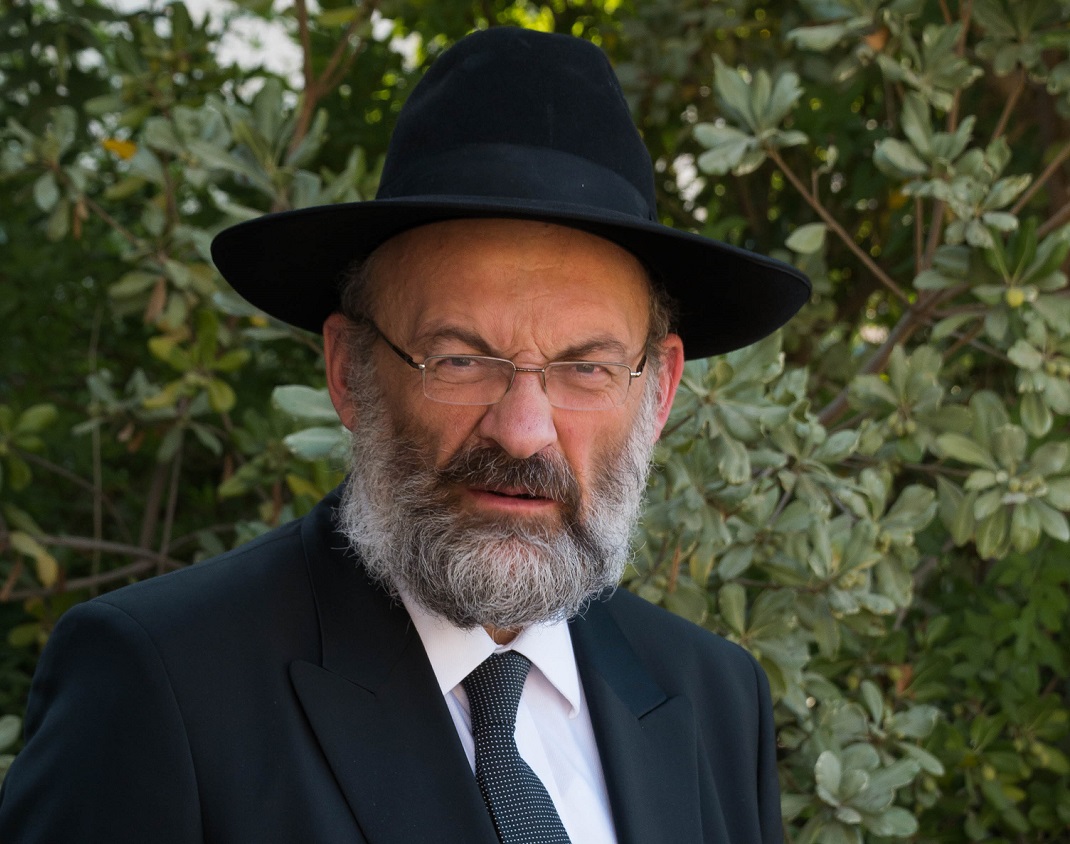Creating a Center

Your authority as a parent doesn't hinge on your children's obedience
Prepared for print by Rabbi Eran Feintuch
Parents today struggle to establish authority in the home. In the non-Jewish world, parental authority mostly involves getting the kids to behave nicely. Don’t hit. Don’t shout. Clean your room. But in the Jewish home, parental authority has much more significance. It’s the single greatest influence on the spiritual path our children will take in life.
Our role as parents is to prepare our children to live a life of Torah and mitzvos. We introduce them to the mitzvos, teach them what it means to live as a Jew, and do our best to make them feel at home in Yiddishkeit. We can only do that if we have authority in their eyes. They have to take our guidance seriously. Otherwise, even if they follow the rules at home, as soon as they walk out the door, they’ll shrug off our influence like a winter coat.
How do we establish authority in the home? To answer that, first we need to clarify what authority means.
Authority doesn’t mean obedience. This is one of the most common mistakes in chinuch. We tell our child, “You need to daven,” and he doesn’t. We say to ourselves, “He doesn’t listen to me — I have no authority!” That’s not true. Yes, he defied our demand. But we can have authority at home even if our children don’t always do what we say.
Authority in the home means that our children take our opinion seriously. It matters to them. For any number of reasons, the child might not actually do what we say. But he grapples with our position before acting. That’s authority.
We see this idea throughout the Torah. Many transgressions in the Torah have a prescribed punishment. Each transgression has two pesukim: One states the prohibition; the other names the punishment. Isn’t the first pasuk superfluous? Wouldn’t it be enough to say, “If you deliberately desecrate Shabbos, you’ll be put to death?” The Sefer Hachinuch explains that if the Torah only stated the punishment, we would still have full license to choose to do the aveirah and receive the punishment. The Torah writes the first pasuk to tell us that Hashem doesn’t allow us to do it.
The threat of punishment is a very effective way of ensuring compliance. But Hashem doesn’t just want us to obey His commands. He wants His will to be important to us. That’s why we need the first pasuk to tell us that He doesn’t want us to do the aveirah. That’s the pasuk that establishes His authority. Compliance is a separate issue.
Real authority means that your opinion is central to your child. He might not always put it into action. But he won’t act without taking it into account.
A talmid of mine told me that when he was a boy, his father never told him to come to shul. When he came, he spent most of the time playing outside, while the other boys his age sat dutifully next to their fathers. His father never said a word. When he did come inside, his father never glanced over to make sure he was davening. Although he didn’t daven, he saw how precious tefillah was to his father. And that instilled in him a deep love of tefillah.
That’s authority. Without forcing his son to do the mitzvah, the father showed his son how important the mitzvah was to him. A child has a natural tendency to accept a father’s authority. If we show our children our central values, those values will become important to them. But if all we do is make demands, they’ll never internalize our values.
Of course, you can’t always let your children do whatever they please. But the main influence we have as parents is through our authority — the values we impart to our children — and not through enforcement.
MY father had a big collection of LPs. One of them didn’t play, because the center was offset. The center of a record must not move. It stays still, and everything revolves around it.
Authority is like the center of the LP. It’s calm but steadfast. Enforcement, though important, can’t be the center of the home. Enforcement is always moving; our every command sends its own message. Daven. Pick up the toys. Make a brachah. If we want our children to take our values seriously, we have to give them a constant message they can build their lives around.
Spiritual growth revolves around a center, just as a tree grows around its core. Chazal tell us a person must make 100 brachos every day. Every brachah has a different ending, but they all start with the same words. Baruch Atah Hashem, Elokeinu Melech Ha’olam. That makes our emunah in Hashem a central point in our lives.
A center is powerful because it doesn’t change. We’re always looking for the fresh and new. Familiar is boring; we think we have to make Yiddishkeit exciting to our children. No! We have to make it central. The center of the LP isn’t exactly fascinating. It doesn’t move; it doesn’t even make music. But it’s the center that everything revolves around.
Of course, you shouldn’t reiterate your message every five minutes. You can communicate it through your actions, or the way you react to situations. But it should be a constant theme in the home. A central message that stays with our children constantly — that’s what makes them grow.
We achieve authority in the home when we create a center in ruchniyus for our children, a constant message about how to live as Jews. When they see how important that value is to us, they’ll appreciate it as well. It could be a mitzvah, or a middah that’s central to us. You could make ayin tovah, looking favorably upon others, the center in your home. Or menuchas hanefesh, going through life calmly out of trust in Hashem. It doesn’t matter, so long as it’s a value that’s central to your own life.
The whole world changes in the blink of an eye. How can we prepare our children for all the challenges they’ll face in their lifetime? My parents never dreamed that one day the Internet would be a foremost nisayon for the young generation, because it simply didn’t exist. You can’t know what new nisyonos your children will face. You can’t know whether your son will stay in yeshivah as long as you’d like, or if he’ll always live in your type of community.
Enforcement can’t be the basis of chinuch in our changing world. If our children only know what we told them to do, they’ll be lost when they find themselves in a situation we didn’t prepare them for. But if we teach a central value to our children, they’ll ask themselves: “What would my father say in this situation? What would my mother advise me to do?”
What are the guiding principles and values in your life? Share them with your children. Over time, try to create a spiritual center in the home. Then your principles will continue to guide them, even when unforeseen scenarios arise. That’s success in chinuch. That’s the key to genuine authority, and to powerful chinuch that will accompany our children their whole lives.
This column will appear once a month
(Originally featured in Mishpacha, Issue 932)
Oops! We could not locate your form.







